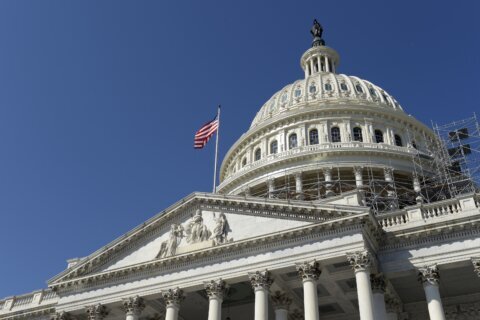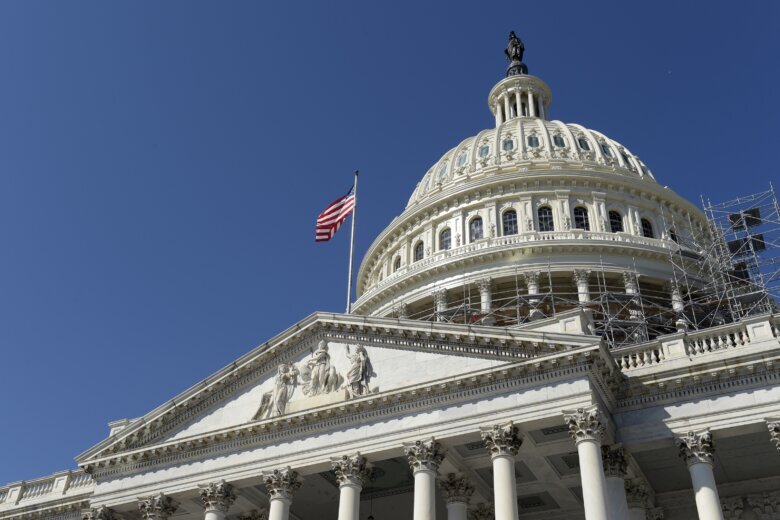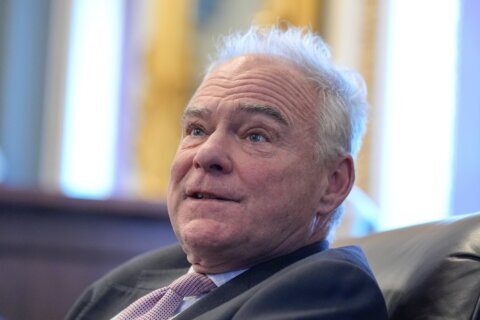
▶ Watch Video: New information revealed through January 6 committee interviews
It’s been more than a year since the January 6 riot at the U.S. Capitol, and still none of the defendants charged in the attack have gone on trial. Although a few are expected to start in the coming months, a Justice Department official told CBS News, defense lawyers believe that some of the hundreds of trials will extend into the 2024 presidential election.
Katie Cusick has made peace with the long wait ahead. “There’s a looming cloud over our head,” she said.
Her father and brother are among the hundreds of January 6 defendants awaiting trial dates and the re-opening of the Washington, D.C. federal court, where U.S. Capitol attack cases are being prosecuted.
“They’re frustrated by the delay and the progress,” she said.
Jim and Casey Cusick, of Melbourne, Florida, are among the approximately 730 defendants in January 6 prosecutions. The two have pleaded not guilty and are free from custody, pending trials. But their defense lawyer has advised the men their cases aren’t likely to close until at least 2023.
They aren’t alone. None of the January 6 defendants have gone on trial yet, more than a year after the attack. Only five are expected to do so before April, a Justice Department official told CBS News.
One defense lawyer, who’s handling the Cusick’s case and the cases of a series of other January 6 defendants, told CBS News he expects some cases to remain open through the next presidential election in November 2024.
The Justice Department is navigating unique and profound logistical problems with its January 6 cases. The D.C. federal courthouse remains closed to jury trials through at least February 7, due to COVID risks. Most hearings are occurring virtual, through Zoom and phone connections. But trials must occur in person inside the courthouse, which is a short walk from the U.S. Capitol.
The agency is also trying to corral an unprecedented avalanche of evidence. The U.S. Capitol riot prosecution, which the agency has characterized as one of the largest criminal cases in U.S. history, is saturated with tips and possible evidence.
In a series of recent court filings, the Justice Department said there are 14,000 hours of Capitol surveillance video, 250 terabytes of data and more than 200,000 tips from the public. Along with a growing collection of social media posts, phone videos and witness interviews, federal prosecutors are trying to manage and organize a growing tower of evidence and materials.
This week, the agency notified a judge there is still “work to do” in preparing the evidence for the court, defense lawyers, defendants and trial.
“This investigation has generated an enormous amount of evidence,” the Justice Department said in a court filing Thursday, as part of its request for a time extension in the case of a defendant from New Jersey.
Judges have set some trial dates, including in the high-profile cases against accused OathKeepers conspirators. Some of those trials are scheduled to begin in April, while others are expected in July and September. The later dates include defendants charged with seditious conspiracy, some of whom are in pretrial detention.
CBS News has learned approximately 40 defendants in January 6 cases are in pretrial detention in the Washington, D.C., jail, some of whom have spent nearly a year behind bars, without firm trial dates. Judges have said the cases involving defendants in pretrial custody should be prioritized for the earlier trial dates.
Katie Cusick said her family agrees her father and brother’s case and trial date should wait until the higher-level jailed defendants have an opportunity to face a jury. “They have it much worse than we do,” she said.
Defendants aren’t the only ones eager for their day in court. U.S. Capitol Police officer Harry Dunn, who withstood physical assault and racial epithets while helping his colleagues defend the Capitol on January 6, is expected to be a witness in trials involving some of the higher-level defendants.
Dunn told CBS News his fellow officers are eager to see justice served, but they understand the reason for the growing delays. “It’s worth the wait,” Dunn said. “You’ve got to be patient.”
A CBS News review of the D.C. federal court docket found Guy Reffitt of Texas will be the first to go on trial. Reffitt has pleaded not guilty to a series of federal charges. He is accused of carrying a gun while amid the mob confronting police officers on January 6. The trial is scheduled to begin February 28 at 9 a.m., if the court does not extend its closure to most in-person operations, including juries, beyond February 7.








